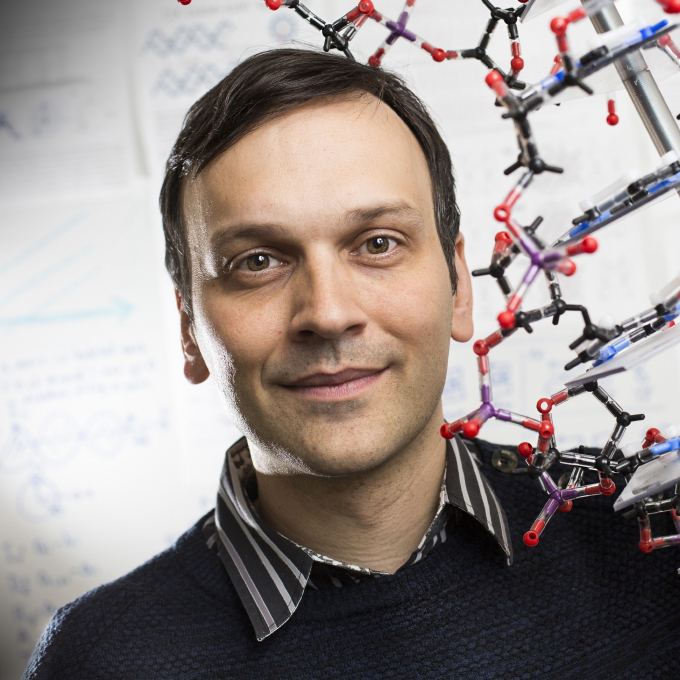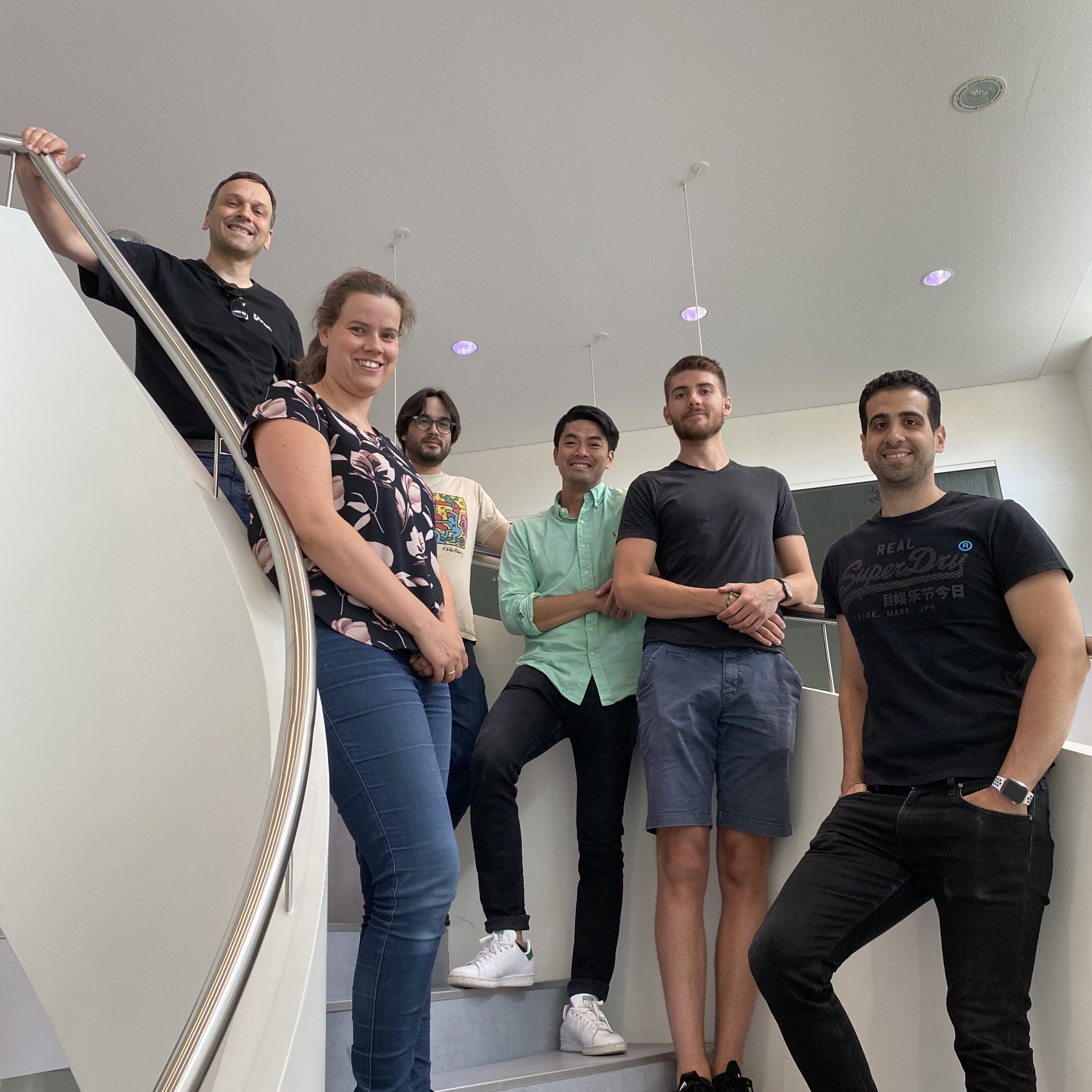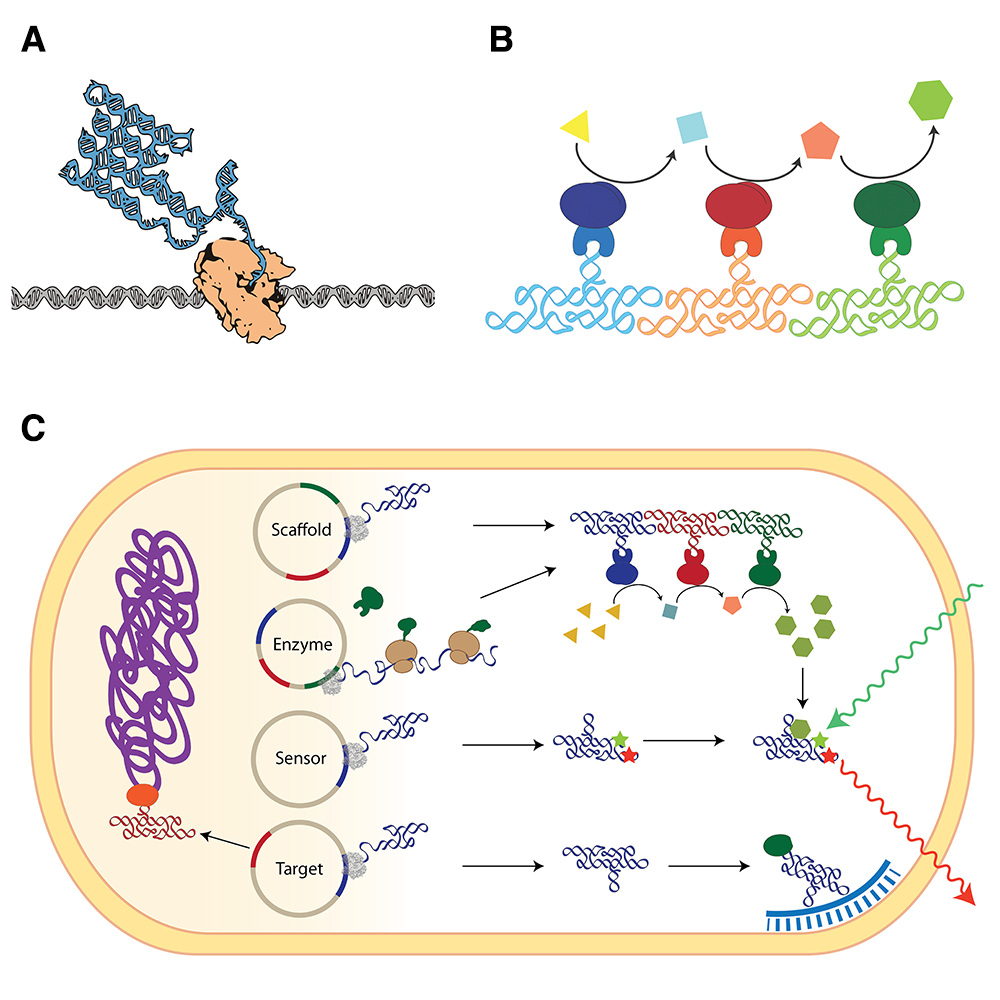DKK 10 million for developing nanoscale assembly lines for biotechnological production
Ebbe S. Andersen is awarded a DKK 10 million Ascending Investigator Grant from the Novo Nordisk Foundation’s Research Leader Programme. The research project aims at using recently developed RNA nanotechnology-based assembly lines, sensors and nanorobots to improve biochemical reactions inside cells. The potential outcome will be improved bacterial and yeast production strains that can be used to generate biofuels, specialty chemicals, and biological drugs from renewable resources.



The research group of Associate Professor Ebbe S. Andersen works on designing biomolecular nanostructures for applications in both basic science and applied science. The research group (see picture) has invented the RNA origami method, which allowed them to develop a technological platform consisting of molecular scaffolds, sensors and nanorobots for applications in synthetic biology. With the Ascending Investigator Grant, the RNA-based platform will be applied in the challenging context of biotechnological synthesis and production, with potential to provide new molecular tools to the biotechnology industry.
Ebbe S. Andersen says: "Cells work efficiently because of their internal organization, which can be compared with a factory with robots in assembly lines. As genetic engineers, we are attempting to redirect these biological factories to produce valuable proteins and chemicals more efficiently."
RNA-based platform for controlling cascades of biochemical reactions
The research project aims at developing a new RNA-based platform to organize, regulate and detect specific metabolic pathways (biochemical reaction pathways in cells) based on rational design methods. The project will demonstrate how RNA scaffolds can organize enzymes into metabolic pathways, to improve the yield and detect intermediates and end products of metabolic pathways (see illustration). To reduce the extra burden on cell metabolism, regulation mechanisms will be used to precisely control the ratio of enzymes to scaffolds in the cells. Finally, the systems will be used to optimize bacteria and yeast production strains that are used in industrial biotechnology to generate biofuels, specialty chemicals and biological drugs from renewable resources.
Links
Read the press release by the Novo Nordisk Foundation.
Read a popular description of the research project.
Contact
Associate Professor Ebbe Sloth Andersen
Interdisciplinary Nanoscience Center (iNANO)
Department of Molecular Biology and Genetics
Aarhus University
Email: esa@inano.au.dk
Phone: +4541178619
Web: andersen-lab.dk